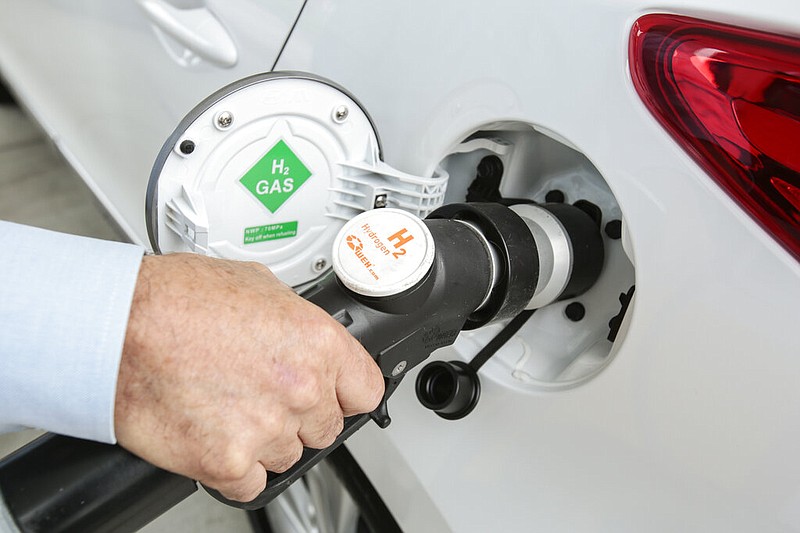The promise laid out by advocates of hydrogen as a fuel of the future sounds pretty amazing. For example, cars using hydrogen fuel cells can have a driving range similar to gas and refueling takes just a few minutes. Best of all, the only byproduct is water, not harmful carbon dioxide.
Would that assuage all the naysayers out there who like to prematurely write the obituary for electric cars every time traffic gets stalled by a snowstorm?
No, driving a hydrogen-fueled car isn't the wave of today. The infrastructure for it simply doesn't exist. But once upon a time humans couldn't rocket to the moon, either. Or fly. Back in 1903, did anyone say "Why are those Wright brother idiots trying to fly? There aren't any airports for them to land at, and no ticket agents to yell at and no Transportation Security Administration ready to force everyone to take shoes and belts off? Duh! We can't fly until someone invents a metal detector for people to walk through."
Of course there were doubters. Always are.
Hydrogen, as plentiful as water (the H in H20 is hydrogen -- two atoms hydrogen to one atom oxygen), can serve as a fuel. It can store energy and be transported for use by industry, trucking, shipping and other energy demands.
Hydrogen has its critics, perhaps most famously Elon Musk of Tesla/SpaceX/Twitter fame. He says focusing on hydrogen is silly because, although it's plentiful on Earth, the process to capture it is inefficient.
Plenty of others say it's key to a clean energy future, and the federal government is putting some money on it. Billions.
Clarksville is counting on it, too. As in the Arkansas Clarksville, in Johnson County. The city has joined forces with Syntex Industries of Little Rock to develop plans for the state's first hydrogen power plant. They hope to deliver more than 500 megawatts of emission-free electricity by 2026 by storing excess energy from renewable sources, such as wind and solar. The Solar Energy Industries Association estimates a national average of 173 homes can be powered per megawatt.
Using hydrogen as the storage medium, the power can be distributed, by pipeline or transported in other ways, to customers where it's needed and when it's needed, not just when the wind is blowing or the sun is shining. Fuel cells, which are not the same as those heavy and limited batteries, convert the hydrogen into energy. As long as everything in that chain of events is "green," the resulting fuel is, too.
Clarksville Mayor David Rieder said the project will create jobs for his community, which are always welcome. And we hope the partnership is also planting the seeds of an energy system capable of producing little to no pollution while realistically meeting demand for electricity.
Advocates acknowledge the problem with solar and wind energy is their limitation as an always reliable or predictable power source. There are cloudy days and windless nights. But some of the energy they produce on sunny or windy days is wasted without a dependable way to store that energy for later. It's virtually impossible to build enough batteries to capture it. But hydrogen can.
Will it succeed in Clarksville? Let's just say there are risks to any energy venture these days. But it's a sure bet that it's beyond time for Arkansans and people beyond the state to look to energy solutions that don't involve burning coal and other fossil fuel.
If one day the Panthers can play under hydrogen-fueled lights and motorists can fill up their hydrogen-fueled cars, wouldn't it be something to know the process wasn't polluting the planet?
We like Clarksville's creative thinking and concern for the future.
More News
NoneWhats the point?
Clarksville shows its willingness to venture into a potentially better energy future.

